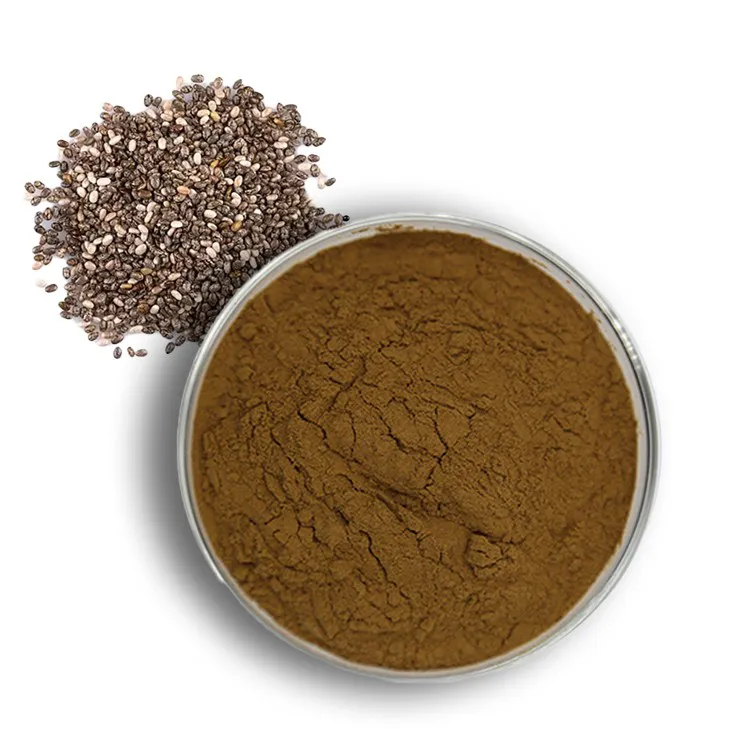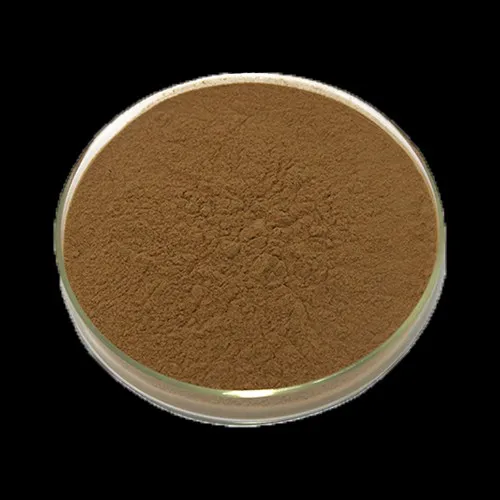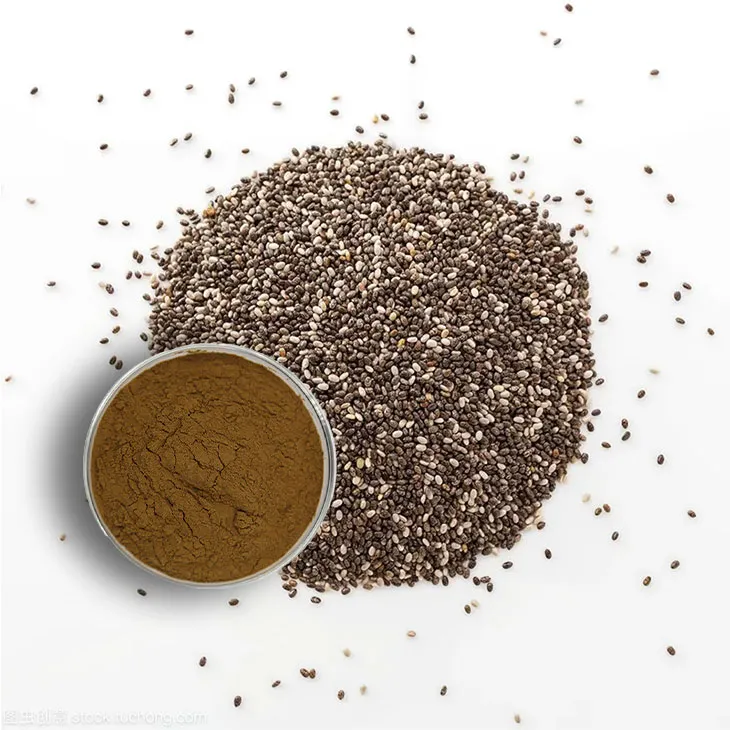- 0086-571-85302990
- sales@greenskybio.com
Is Chia seed powder good for diabetes? Are these safe for diabetes patients?
2024-11-12

1. Introduction
Diabetes has become a global health concern, and people are constantly seeking natural ways to manage their blood glucose levels. Chia seeds powder has emerged as a trendy ingredient in recent years, with many claims about its potential benefits for various health conditions, including diabetes. In this article, we will take a comprehensive look at whether chia seeds powder is good for diabetes, how it may affect blood glucose levels, the role of its rich nutrients, and most importantly, whether it is a safe choice for those with diabetes.
2. What are Chia Seeds?
Chia seeds are small, oval - shaped seeds that come from the Salvia hispanica plant, native to Central and South America. These seeds have a long history of use in traditional medicine and as a food source. They are rich in nutrients such as fiber, protein, healthy fats (omega - 3 fatty acids), and various minerals and vitamins.

3. Nutritional Composition of Chia Seeds Powder
3.1 Fiber
Chia seeds powder is an excellent source of dietary fiber. Fiber is crucial for people with diabetes as it can slow down the digestion and absorption of carbohydrates. This helps in preventing rapid spikes in blood glucose levels. Soluble fiber in chia seeds powder can form a gel - like substance in the digestive tract, which further slows down the release of sugars into the bloodstream.
3.2 Protein
Protein is another important component of chia seeds powder. A higher protein intake can help in improving satiety, which may lead to better control of food intake. Additionally, protein has a relatively lower impact on blood glucose levels compared to carbohydrates, and it can also contribute to muscle maintenance and repair, which is beneficial for overall health.
3.3 Omega - 3 Fatty Acids
Chia seeds are rich in omega - 3 fatty acids, specifically alpha - linolenic acid (ALA). These healthy fats have been associated with various health benefits, including reducing inflammation. Inflammation is often linked to insulin resistance, a key factor in type 2 diabetes. By reducing inflammation, omega - 3 fatty acids may potentially improve insulin sensitivity, although more research is needed to confirm this effect in the context of diabetes.
3.4 Minerals and Vitamins
Chia seeds powder also contains important minerals such as calcium, phosphorus, and magnesium, as well as vitamins like niacin and folate. These nutrients play essential roles in maintaining normal body functions. For example, magnesium is involved in glucose metabolism, and a deficiency in magnesium has been associated with an increased risk of developing type 2 diabetes.

4. Effects on Blood Glucose Levels
Several studies have investigated the effects of chia seeds on blood glucose levels. Some research suggests that the fiber and other components in chia seeds powder can help regulate blood glucose. For instance, in a study where participants consumed chia seeds as part of their diet, there was a noted improvement in glycemic control over time. However, it's important to note that individual responses may vary, and more research is needed to fully understand the extent of its impact on blood glucose levels in different populations with diabetes.

5. Role in Weight Management
Weight management is an important aspect of diabetes management. Chia seeds powder can be beneficial in this regard due to its high fiber and protein content. As mentioned earlier, fiber can increase satiety, reducing the urge to overeat. Protein also has a satiating effect. By helping with weight management, chia seeds powder may indirectly contribute to better blood glucose control, as excess body weight is often associated with insulin resistance and higher blood glucose levels.
6. Safety of Chia Seeds Powder for Diabetes Patients
6.1 Allergic Reactions
While chia seeds are generally considered safe, some individuals may be allergic to them. Allergic reactions can range from mild symptoms such as itching and hives to more severe reactions like difficulty breathing. Diabetes patients who are considering adding chia seeds powder to their diet should be cautious and monitor for any signs of an allergic reaction, especially if they have a history of food allergies.
6.2 Interaction with Medications
Chia seeds powder may interact with certain medications. For example, because of its high fiber content, it may interfere with the absorption of some oral medications. Diabetes patients who are on medications should consult their healthcare provider before starting to consume chia seeds powder. The healthcare provider can adjust the timing of medication intake if necessary to ensure proper absorption and effectiveness of the drugs.
6.3 Digestive Issues
Since chia seeds absorb a large amount of water and expand in the digestive tract, some people may experience digestive issues such as bloating, constipation, or diarrhea when consuming chia seeds powder. For diabetes patients, especially those with pre - existing digestive problems, it's important to start with a small amount of chia seeds powder and gradually increase the intake to see how their body reacts.
7. How to Incorporate Chia Seeds Powder into the Diet
There are several ways to incorporate chia seeds powder into the diet for diabetes patients. Here are some suggestions:
Add to Smoothies: Chia seeds powder can be easily added to smoothies. Combine it with fruits (preferably low - glycemic index fruits like berries), vegetables, and a protein source such as Greek yogurt or a plant - based protein powder. This makes for a nutritious and diabetes - friendly meal replacement or snack.
Mix with Oatmeal: Sprinkle chia seeds powder over oatmeal in the morning. Oatmeal is already a great choice for diabetes patients due to its high fiber content, and adding chia seeds powder can further enhance its nutritional value.
Use in Baking: Chia seeds powder can be used in baking recipes as a partial replacement for flour. This can add extra fiber and nutrients to baked goods, although it may slightly alter the texture.
8. Conclusion
In conclusion, chia seeds powder has several potential benefits for diabetes patients. Its rich nutritional composition, including fiber, protein, omega - 3 fatty acids, and various minerals and vitamins, may contribute to better blood glucose control, weight management, and overall health. However, diabetes patients should be aware of the potential safety issues, such as allergic reactions, interactions with medications, and digestive problems. Before incorporating chia seeds powder into their diet, it is advisable for them to consult their healthcare provider. With proper caution and guidance, chia seeds powder can be a valuable addition to the diet of diabetes patients.
FAQ:
1. What are the main nutrients in chia seeds powder?
Chia seeds powder is rich in several nutrients. It contains a significant amount of dietary fiber, which can help with digestion and may also play a role in blood sugar regulation. It also has omega - 3 fatty acids, which are beneficial for heart health. Additionally, it contains proteins, vitamins (such as B vitamins), and minerals (like calcium, magnesium, and phosphorus).
2. How can chia seeds powder affect blood glucose levels?
The high fiber content in chia seeds powder can slow down the digestion and absorption of carbohydrates. This may lead to a more gradual rise in blood glucose levels after a meal, rather than a sharp spike. However, it's important to note that individual responses can vary, and it should be part of an overall balanced diet for diabetes management.
3. Is chia seeds powder safe for all diabetes patients?
While chia seeds powder can be generally safe for most diabetes patients, there are some considerations. Some people may have allergies or sensitivities to chia seeds. Also, if consumed in excessive amounts, it could potentially cause digestive issues such as bloating or constipation due to its high fiber content. It's always advisable to consult a healthcare provider before adding it to the diet.
4. How much chia seeds powder can a diabetes patient consume daily?
There is no one - size - fits - fits - all answer. However, a common recommendation is to start with a small amount, such as 1 - 2 tablespoons per day, and gradually increase while monitoring for any adverse effects. This amount can be adjusted based on individual tolerance, overall diet, and blood sugar control.
5. Can chia seeds powder replace diabetes medications?
No. Chia seeds powder is a dietary supplement and not a substitute for diabetes medications. While it may have some beneficial effects on blood sugar management, it cannot replace the role of medications prescribed by a doctor. It can be used as part of a comprehensive approach to diabetes management, which includes a proper diet, exercise, and medication as needed.
Related literature
The Role of Chia Seeds in Diabetes Management"
"Chia Seeds: Nutritional Benefits and Implications for Diabetes"
"Evaluating the Safety and Efficacy of Chia Seeds Powder in Diabetic Patients"
- ▶ Hesperidin
- ▶ Citrus Bioflavonoids
- ▶ Plant Extract
- ▶ lycopene
- ▶ Diosmin
- ▶ Grape seed extract
- ▶ Sea buckthorn Juice Powder
- ▶ Fruit Juice Powder
- ▶ Hops Extract
- ▶ Artichoke Extract
- ▶ Mushroom extract
- ▶ Astaxanthin
- ▶ Green Tea Extract
- ▶ Curcumin
- ▶ Horse Chestnut Extract
- ▶ Other Product
- ▶ Boswellia Serrata Extract
- ▶ Resveratrol
- ▶ Marigold Extract
- ▶ Grape Leaf Extract
- ▶ New Product
- ▶ Aminolevulinic acid
- ▶ Cranberry Extract
- ▶ Red Yeast Rice
- ▶ Red Wine Extract
-
Bilberry Extract
2024-11-12
-
Peppermint Extract Powder
2024-11-12
-
Eyebright Extract
2024-11-12
-
Licorice Root Extract Powder
2024-11-12
-
Grape Leaf Extract
2024-11-12
-
Dandelion Leaf Extract
2024-11-12
-
Calendula Extract
2024-11-12
-
Okra Extract
2024-11-12
-
Sugarcane Extract
2024-11-12
-
Acai Berry Extract
2024-11-12





















